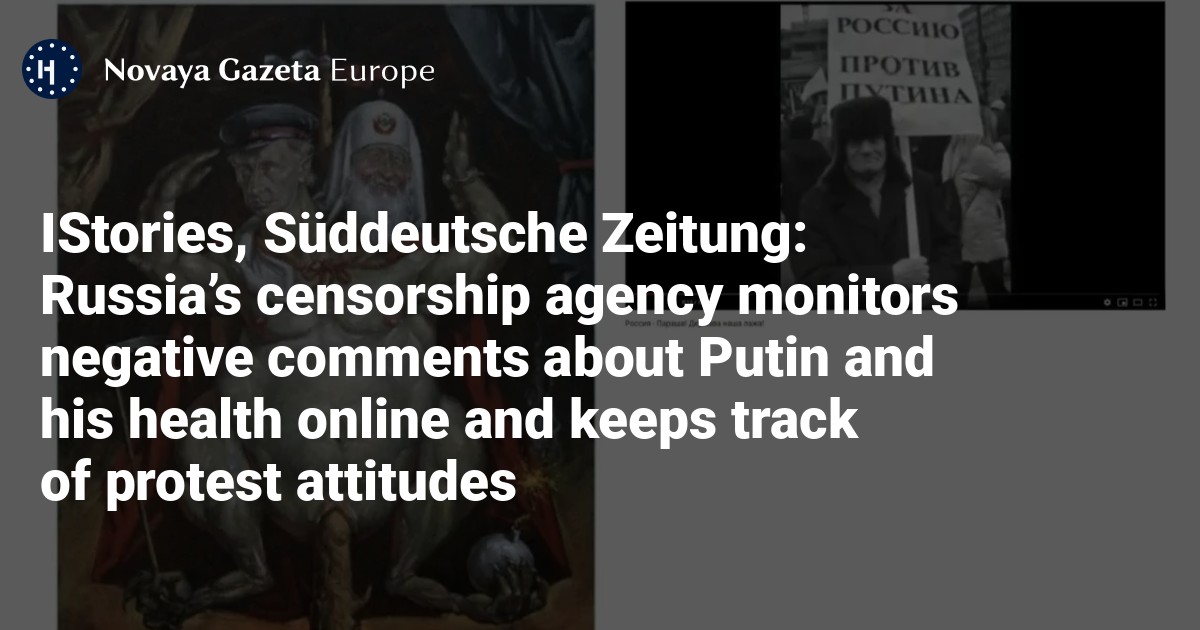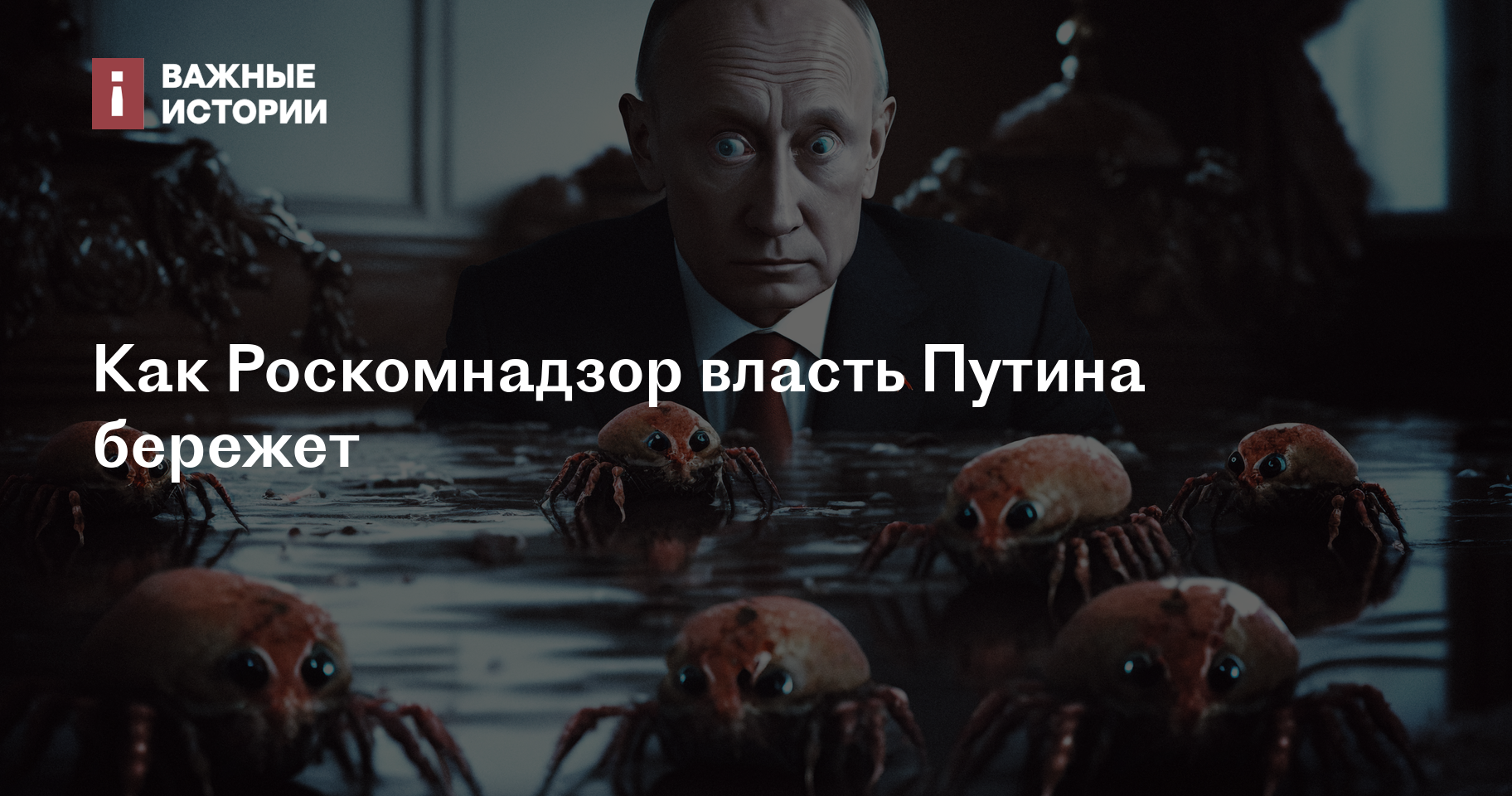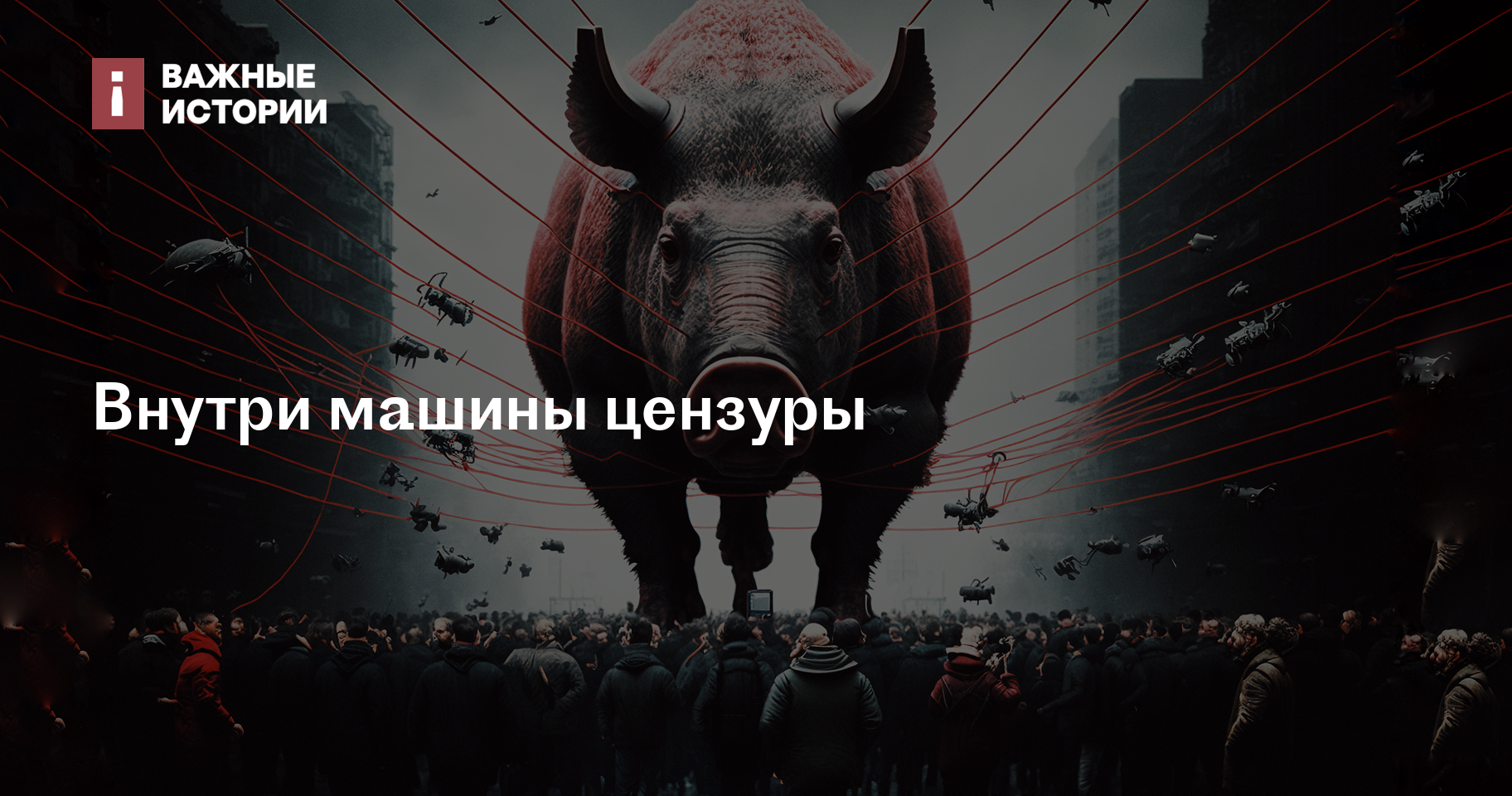BRIEF: Documents from the recent #RussianCensorFiles
Cyber Partisans • February 8, 2023
Summary
Reporting in this series of stories is based on leaked emails from Roskomnadzor's (RKN) sister company, the Main Radio Frequency Center (GRFC). GRFC appears to compile reports about online activity that it sends to the presidential administration and law enforcement agencies.
GRFC seems to focus on "information tension" where the Kremlin stance is contested. This may relate to their potential to drive protests.
Employees look for negative publications about Putin and the deterioration of his health. They also make predictions about what event may cause an increase in criticism in the future. Reports include details about "protest moods," by location.
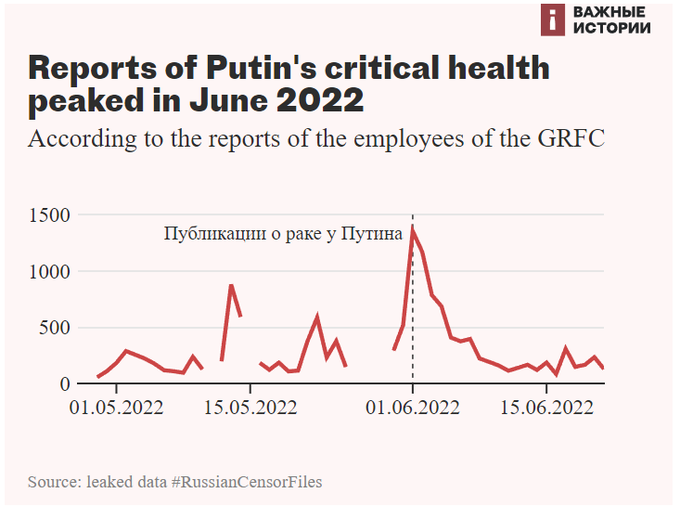
GRFC uses Brand Analytics media and social media monitoring systems to look for keywords. Examples provided by reporting include “bald dwarf,” “puilo,” “PutinVor,” “Little Tsakhes,” “chief corrupt official,” and “Putler,” “Pynya.”
Reporting is provided to security services using an internal messenger by which they communicate with employees of RKN, the Prosecutor General’s Office, the Ministry of Internal Affairs, and the FSB.
Russian censors began to closely monitor reports of mobilization, losses of the Russian army, and what was happening in the occupied territories of Ukraine after the start of the renewed invasion.
Roskomnadzor (RKN) has plans (the leak did not indicate these had been realized) to surveillance the entire Russian-speaking Internet using artificial intelligence. RKN will look for “manipulations and social polarization.”
Key topics for monitoring would be:
- Territorial integrity, "ethnic strife," migration policy, etc.)
- Negative attitude towards the state, state structures, and interstate organizations
- "Fakes" about "first persons of the state," about the state and the country as a whole;
- Manipulation of public opinion and polarization of society (for example, on the topics of non-systemic opposition, sanctions pressure, etc.)
- "Substitution and discrediting" of "traditional values"
RKN appears to have plans for a neural network to search for information prohibited by the authorities in texts, like “points of information tension” (TIN) and threats of protests. It seems they aim to be able to forecast, ultimately.
According to Important Stories and the Süddeutsche Zeitung, leaked files show plans for a neural network that would find “calls for the violent overthrow of power”, “fakes about the president and the state,” and “propaganda of non-traditional sexual relations” by 2023.
The leaks did not contain any indication this had been achieved yet. Slides also indicate platforms where they intend to implement monitoring. Yandex shows implementation already, with mail[.]ru and Google listed as planned.
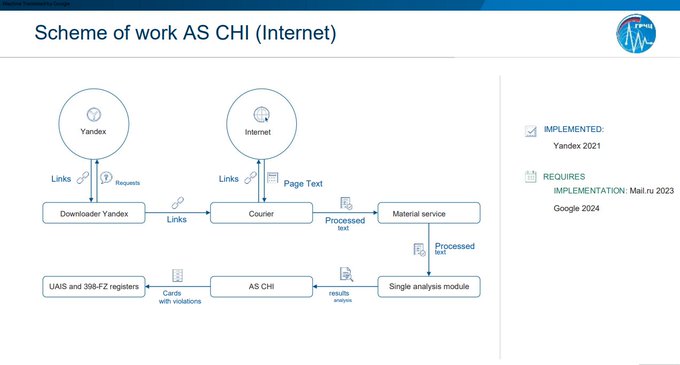
Other platforms slated for surveillance include Twitter, Telegram, Instagram, Facebook, TikTok, Yandex, and RuTube for 2023.
Based on this report, I have some thoughts and observations to add. One of the important parts of the censorship model that gets less attention than RKN is the Ministry of Internal Affairs. It appears central in specific targeting campaigns. More on this soon, hopefully.
What's significant is the current censorship strategies are somewhat primitive, labor-intensive, and inconsistent. If these grandiose plans were to be realized, even in part, the current censorship inside of Russia would look like nothing in hindsight. It would be a game-changer.
While Russia's plans are theoretically feasible, they require a large budget, data collection and labeling team, monitoring, engineering, and management. The more primitive system requires labor, but the Kremlin could force people to work on it.
The less-feasible Vepr project, which is supposed to predict future “information threats” and protest moods using social media as the information to predict, seems unlikely to be reliable.
We know new tech is being trialed, and the measures could become more effective over time. These new technologies and strategies are being tested now.
Lawmakers in democratic nations should call leaders of the listed platforms and require them to prepare plans to counter this global state surveillance. Whether Russia achieves these plans or something else, the goal is clear. The plans are not limited to Russian citizens.

